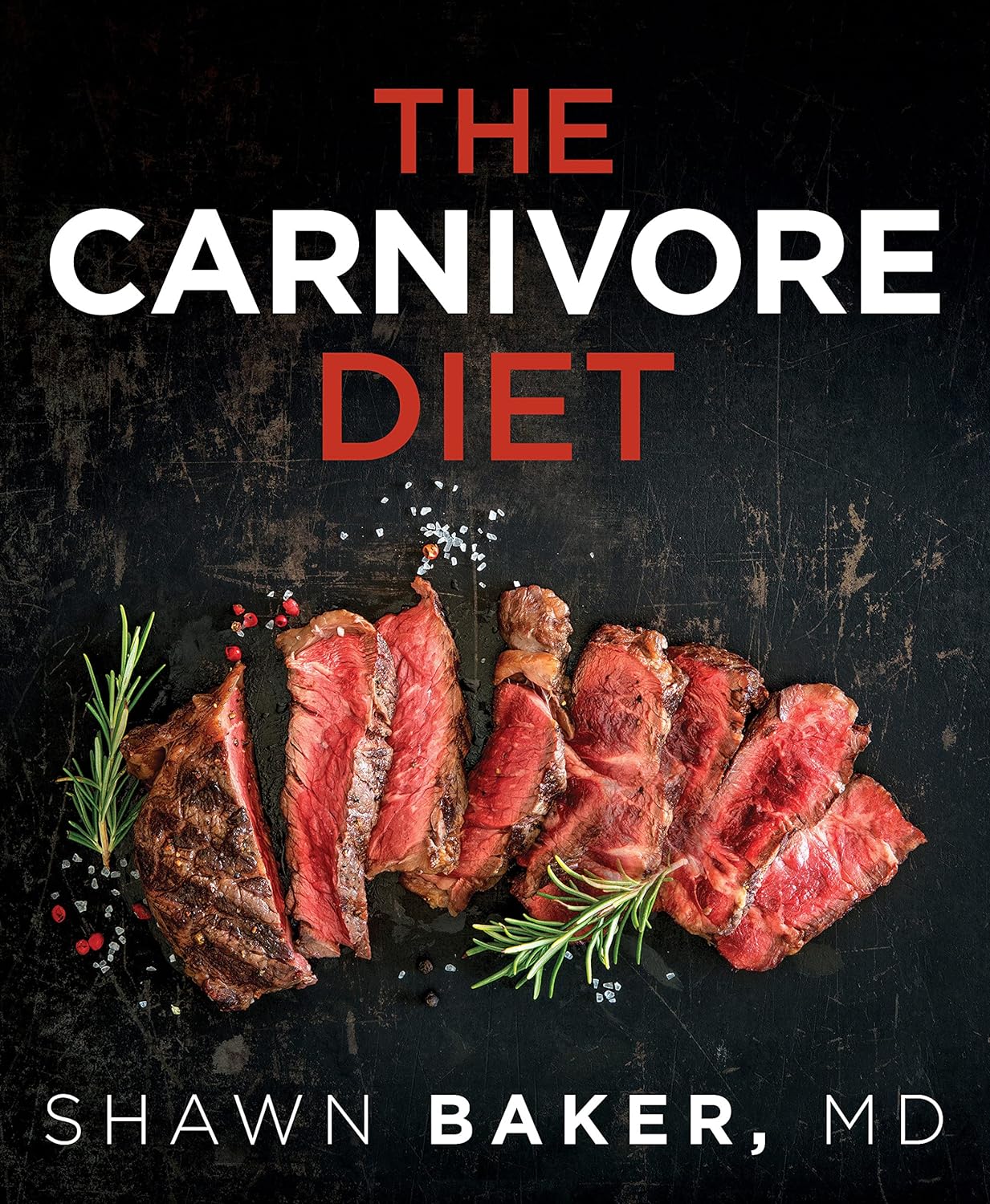A Thought-Provoking Challenge to Conventional Nutrition Wisdom
In his provocative new book “The Carnivore Diet,” Dr. Shawn Baker makes a bold yet reasoned case that many of today’s health epidemics—from obesity and diabetes to autoimmune disorders and more—stem not from eating meat but rather a modern diet high in processed foods and refined carbohydrates.
A practicing orthopedic surgeon and athlete who has eaten an all-meat diet for over two years, Dr. Baker draws on his medical expertise, an in-depth review of nutrition science (including its flaws), and the experiences of the thousands who have adopted this way of eating to argue that the long-held belief humans need fruits, vegetables, and whole grains to be healthy is more myth than fact.
Debunking the “Meat is Bad” Myth
Dr. Baker systematically dismantles the claimed risks around red meat, from cancer to heart disease and beyond, as mostly stemming from poor epidemiology and association rather than causation. He cites countering examples, like the meat-loving Hong Kong population that enjoys the world’s longest life expectancy, as evidence that animal foods aren’t inherently unhealthy.
In fact, he makes a compelling case from evolutionary biology that meat (especially fatty meat), along with organ meats, was the nutritional powerhouse food that fueled human brain development and health prior to the agricultural revolution. So perhaps it’s no surprise some thrive when they return to this ancestral way of eating today.
Why Plants May Be More Problematic
Perhaps the boldest argument Dr. Baker makes is that many fruits, veggies, and other plants widely believed to be essential to good health are actually less nutrient-dense and contain natural pesticides and other antinutrients potentially harmful in large quantities.
He cites numerous studies questioning the benefit of frequent fruit and vegetable consumption. Drawing on his clinical experience and aggregating many vivid testimonials, he shares story after story from those who ditched plants and saw autoimmune conditions, allergies, digestive issues, and more vanish.
Not a Cure-All But Remarkable Results
To be sure, Dr. Baker doesn’t position carnivore as a miracle cure-all. He acknowledges it may not work for everyone. Yet the sheer volume of inspiring anecdotes of those finding relief from everything from chronic fatigue to lifelong depression and anxiety after switching to meat and water alone makes a compelling case there’s something uniquely beneficial at work.
A Guide to Transitioning
Dr. Baker dedicates several chapters to practical guidance for transitioning to and maintaining this long-term way of eating. He shares his experience with common symptoms arising at first, like changes in energy, sleep, and digestion, along with troubleshooting advice.
He offers tips for sourcing quality meat affordably, traveling, reintroducing other foods, and more. While not glossing over the challenges, he provides an honest look at what to expect when embarking on this radical dietary change.
Addressing Important Critiques
Given this diet flies in the face of decades of conventional nutrition advice, Dr. Baker directly addresses critical common concerns. He digs into prevalent myths around meat’s environmental impact, explaining how grass-fed beef may be carbon neutral or even negative while discussing the fossil fuel usage of plant agriculture.
He also attempts to reframe factory farming not as ideal but in some ways more humane than an animal’s likely violent death in the wild. He looks at how eliminating livestock could devastate rural economies and eliminate animals critical to maintaining healthy grassland ecosystems.
A Different Vision for the Future of Food
Refreshingly non-dogmatic in his approach, Dr. Baker doesn’t insist that all meat and no plants are the only healthy path for everyone. Yet the evidence he compiles is compelling enough any reader may come away questioning what they’ve been told requires healthy eating.
Well-researched, persuasively argued, and full of surprising facts, The Carnivore Diet serves as an indispensable resource for those seeking to understand the relationship between food and health. It may forever change your vision for the future of nutrition.
